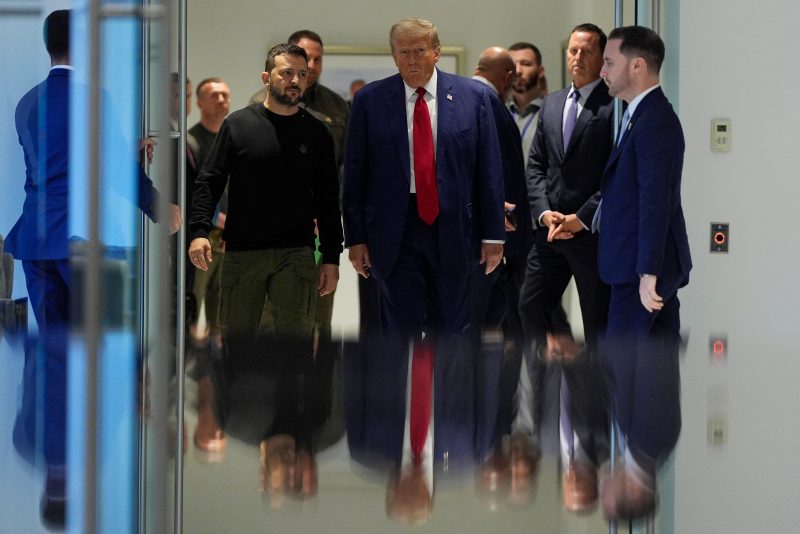The conflict between Russia and Ukraine has been a long-standing issue that has garnered international attention and scrutiny since its inception. Recently, former US President Donald Trump weighed in on the conflict, expressing his belief that Ukrainian President Zelensky should never have allowed the war to begin. Trump’s comments have sparked controversy and debate, as they raise questions about the complexities and challenges faced by Ukraine in the face of Russian aggression.
Trump’s assertion that Zelensky could have prevented the conflict overlooks the underlying causes and dynamics that led to the escalation of hostilities between Russia and Ukraine. The conflict in eastern Ukraine, which erupted in 2014 following Russia’s annexation of Crimea, is rooted in historical, political, and territorial grievances that have been exacerbated by geopolitical factors and power struggles in the region. To suggest that Zelensky could have single-handedly prevented the war overlooks the broader context and complexities of the situation.
Furthermore, Trump’s comments fail to acknowledge the role that Russia has played in fueling the conflict and supporting separatist movements in eastern Ukraine. The intervention of Russia, through military support and backing of separatist groups, has been a key driver of the ongoing conflict and has significantly influenced the trajectory of the war. Blaming Zelensky for the conflict overlooks the aggressive actions and destabilizing behavior of the Russian government, which has violated Ukraine’s sovereignty and territorial integrity.
It is essential to recognize that Ukraine is a sovereign nation with the right to defend its territorial integrity and protect its citizens from external aggression. The Ukrainian government, under President Zelensky, has been faced with the difficult task of managing a protracted conflict while navigating complex political realities and negotiating with international stakeholders. The challenges and constraints faced by Ukraine in the context of the conflict cannot be underestimated, and simplistic assertions about the responsibility for the war fail to capture the nuances of the situation.
Moreover, Trump’s comments raise questions about the role of the United States and other international actors in promoting peace and stability in the region. As a former US President, Trump’s statements carry weight and influence, and they have the potential to shape public perception and policy responses to the conflict. It is crucial for leaders and policymakers to approach the Ukraine-Russia conflict with sensitivity, understanding, and a commitment to promoting a peaceful resolution that upholds the principles of sovereignty, self-determination, and international law.
In conclusion, the Ukraine-Russia conflict is a complex and multifaceted issue that requires a comprehensive and nuanced approach. Trump’s comments about President Zelensky and the war in Ukraine oversimplify the realities and challenges faced by the Ukrainian government and fail to account for the broader geopolitical dynamics at play. As the conflict continues to unfold, it is essential for leaders and stakeholders to engage in constructive dialogue, diplomacy, and negotiation to promote peace, stability, and security in the region.
